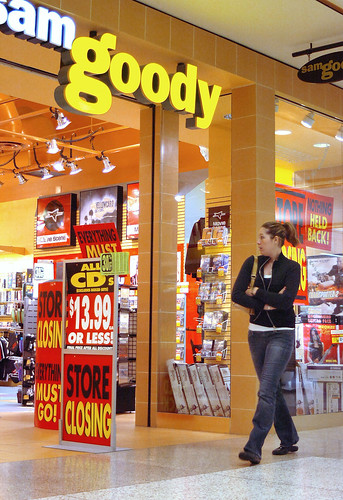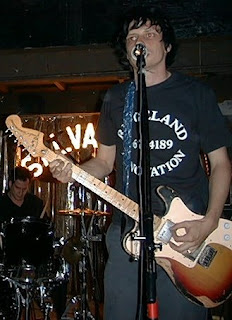Album of the Year: David Sylvian - "Manafon"
He packaged it as digital downloads, a compact disc, or a deluxe hardback book. Built a lovely website, too.
The music is beautiful, sad, and thought-provoking, and the execution is masterful. It's also all completely in line with where I think interesting musical art should be going. Hands-down winner this year.
If you liked Talk Talk's records "Spirit of Eden" and "Laughing Stock", you'll probably like this.
Best New Album by Old Band: (Tie)
Nitzer Ebb - "Industrial Complex"
They returned this year with a vengeance. "Industrial Complex" doesn't break any new ground for the band, but it produces a re-cap of their unique take on EBM and industrial. Few bands are both so catchy and so abrasive. The album is solid all the way through with plenty of references to all of the great things about all of their records. I could even hear some pop tart making "Hit You Back" a Top 10 single. Only available as downloads for now. Skip iTunes' AAC format for some good ol' MP3s from Amazon.com.
If you like Nitzer Ebb, Depeche Mode, Nine Inch Nails, or dancing to synthesizer music, check it out.
The Church - "Untitled #23"
A solid, mysterious album with songs that reminded me of my own "Overcast" in places. They stretch a bit here, too, with Steve Kilbey marking the outer edges of his vocal range and style, including one of his more aggressive vocal takes on "Anchorage".
Masterful work from veteran musicians. Obviously great if you are a fan of The Church (or a newcomer). Also great if you like Television, or other post-punk guitar bands.
There was a lot of competition for this slot, with the runner-up being the nicely-packaged and chock-full of rarities re-issue of Duran Duran's "Rio". But Kraftwerk absolutely dominated with "The Catalogue".
Unfortunately delayed several times, and then released in the USA with a "well, this is what you have to buy if you want the good albums" approach, The Catalogue shames most other reissues.
The packaging is top-notch. A 12"-record sized proper box. Tiny reproductions of the albums, using proper 3-dimensional boxes with spines and slide-out envelopes. And then massive, gorgeous booklets with full art and liner notes as the band always intended.
The sound quality is also incredible, to the point where you can hear obvious flaws in the original recordings or sound programming. Well worth the price, and a fitting tribute to a band as influential on the pop music of this century as The Beatles were on the music of the last century.
Essential listening for any music fan. These guys are part of the modern cultural canon. Also essential for packaging designers.
Or perhaps it's the best album by The Knife. The Fever Ray album made a bunch of folks' top lists this year. It's...good.
In particular, its strengths lie in its production, packaging, and total impact. In many ways it's the Björk record of the year. "Quirky" vocals by a non-native English speaker delivered with a charming accent, a unique vocal style, and funny/mysterious/borderline nonsense lyrics.
Nice synth/electronic production, but overall bearing a very strong resemblance to her other band, The Knife. Not surprising, but I sort of expected more. The record skates by a lot on style. The songs have moods, but don't really go anywhere or lodge deeply in the mind. Lots of reliance on 5ths, weird sounds, and the same sort of vocal processing and effects that made The Knife sound so fresh.
For fans of Bjork, The Knife, film soundtracks, and "headphone music". Not so good for parties.
Fever Ray also gets points for actually making the single "When I Grow Up" available for free download. Try BetterPropaganda, where I find a lot of music.
Video for "If I Had A Heart":
Doubtless part of Fever Ray's success lies in her willingness to use the Internet for promotion.
David Sylvian finally put "Small Metal Gods" up on YouTube, but he's got no free download. Neither The Church nor Nitzer Ebb put up free downloads, and neither of them have "official" videos on YouTube yet. In their case, it may be they simply don't have the budget or interest in such things. To The Church's credit, they haven't pulled down any of the fan-made videos for their new album.
Artists, remember: In the 21st century, you should worry about getting people to pay attention to your music, and less about getting them to pay for your music. The former is becoming more difficult but remains a pre-requisite for the latter.
I look forward to more great music in 2010!








